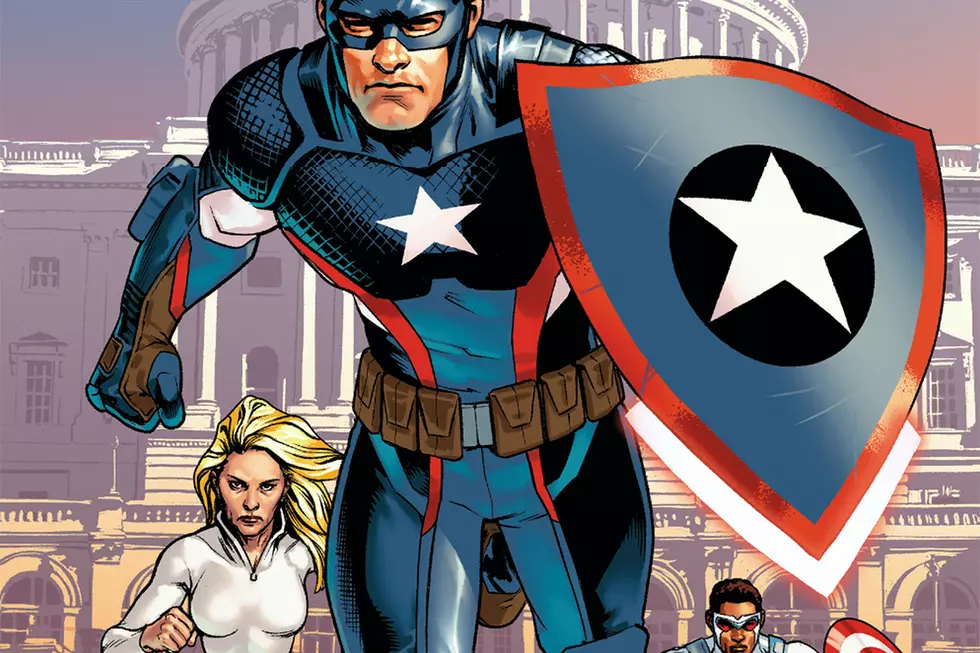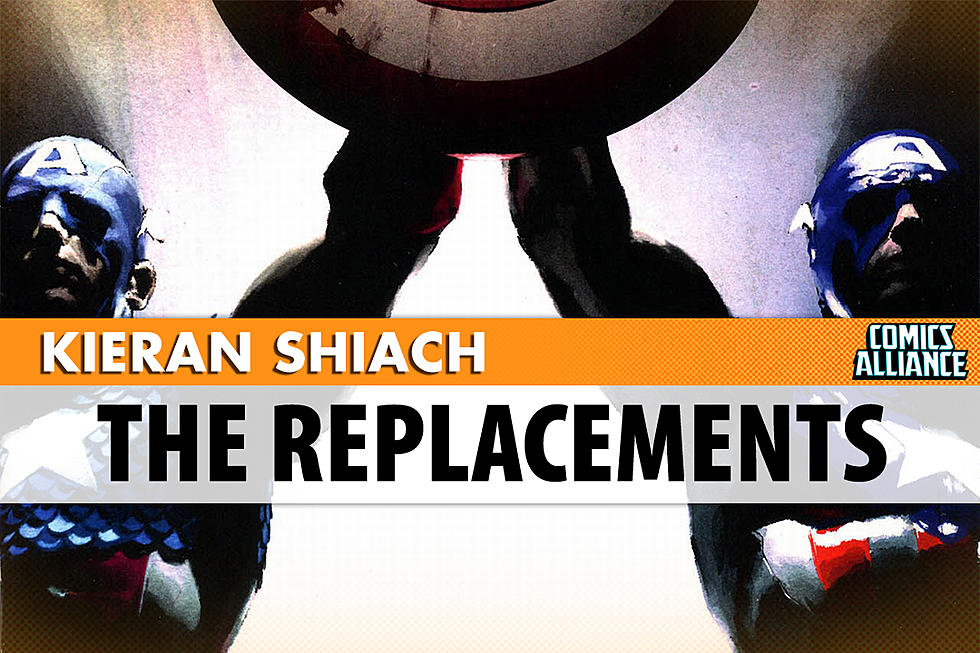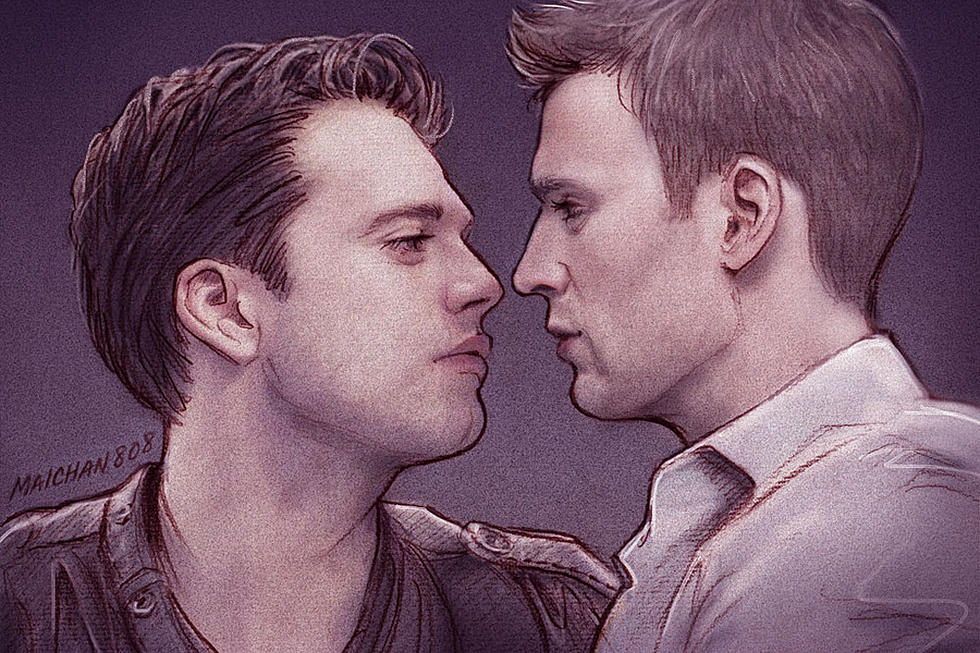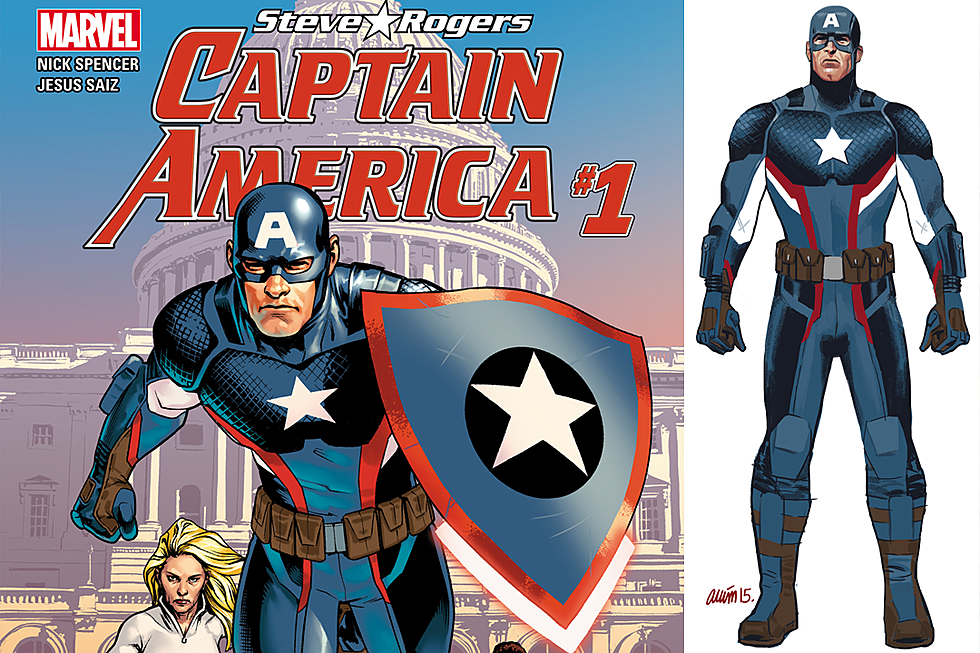
Reading List: The Ten Essential Captain America Stories
The original Captain America was the creation of Joe Simon and Jack Kirby, first appearing in March 1941's Captain America Comics #1 from Timely Comics, the company that would later become Marvel Comics. The book made waves from day one by featuring the title character punching Adolf Hitler over a year before the United States declared war on the Axis powers.
Since that time, Captain America has had an illustrious career as the Avengers' most famous leader, but also as something like the moral center of the Marvel universe. We've picked ten of the very best Captain America stories by some of his many notable creative teams.



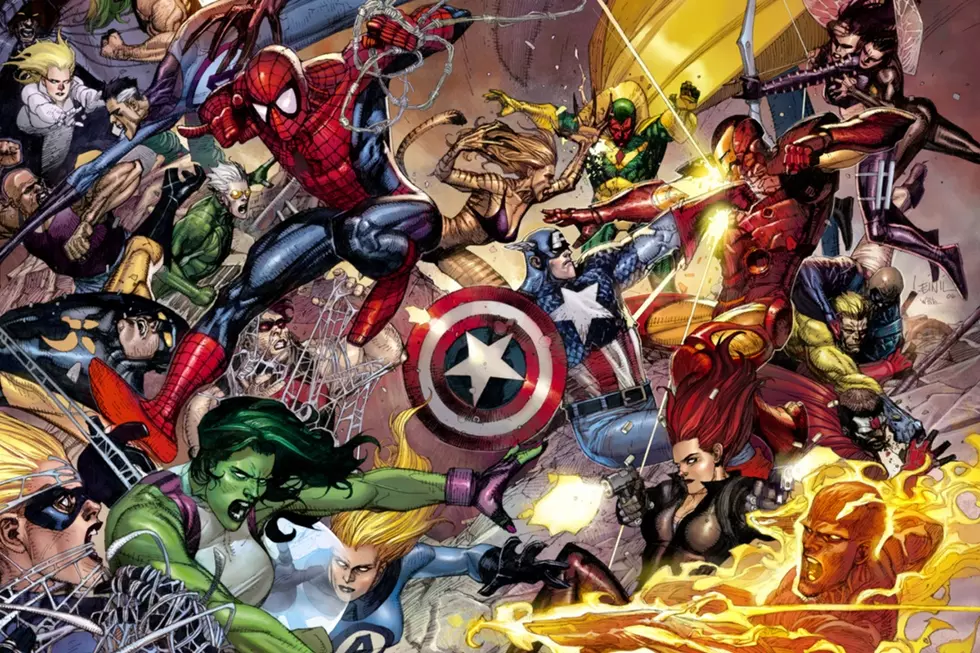
![The Case For A Trans Captain America [Pride Week]](http://townsquare.media/site/622/files/2016/06/PrideWeek-Trans-CapAmerica.jpg?w=980&q=75)
